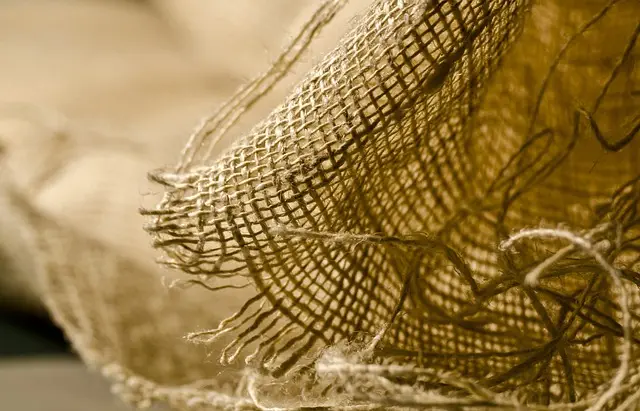Maeng Da Kratom, sourced from the Mitragyna speciosa tree, has been the subject of debate regarding its impact on hair health. Contrary to some claims that it causes hair loss, scientific studies and a growing body of research indicate that the alkaloids in Maeng Da, including mitragynine and 7-hydroxymitragynine, do not have a direct biological mechanism linked to influencing hair follicle health. Alopecia, or hair loss, is typically caused by genetic, hormonal factors, or underlying medical conditions rather than kratom use. While some individuals may report adverse effects on their hair after consuming Maeng Da, these reports may not be conclusively tied to the substance itself. It's important to approach such claims critically and consider professional medical advice for actual hair health concerns. The current scientific evidence does not support the idea that Maeng Da Kratom causes hair loss, and users should be cautious about attributing hair-related issues to kratom without further investigation into their overall health and lifestyle factors.
Maeng Da Kratom, a potent strain of the Mitragyna speciosa plant, has garnered attention for its myriad purported benefits. As curiosity and research surrounding its impact on hair health grow, this article delves into the science behind Maeng Da Kratom and its potential effects on hair loss concerns, addressing common misconceptions along the way. Uncover the truth about whether kratom cause hair loss and discover how Maeng Da might play a role in maintaining luscious locks. Join us as we explore the relationship between this plant-based compound and the vitality of your hair.
- Unraveling the Effects of Maeng Da Kratom Powder on Hair Health
- The Science Behind Maeng Da Kratom and Its Impact on Hair Loss Concerns
- Addressing the Myth: Debunking the Link Between Maeng Da Kratom and Hair Loss
Unraveling the Effects of Maeng Da Kratom Powder on Hair Health

Maeng Da Kratom Powder, a derivative from the Mitragyna speciosa tree, has garnered attention for its various effects on human health. Within the realm of hair health, there is a growing curiosity about its potential impact. While scientific research on this topic is still emerging, anecdotal evidence and some preliminary studies suggest that Maeng Da Kratom may have properties that influence hair health positively. Alkaloids present in Maeng Da, such as mitragynine and 7-hydroxymitragynine, are believed to stimulate the scalp and promote healthy hair growth. This is due to their anti-inflammatory and antioxidant properties that may reduce the presence of DHT, a hormone linked to hair loss, and combat oxidative stress, which can lead to weaker hair and potentially cause hair loss.
Conversely, concerns have been raised about whether kratom, including Maeng Da, could potentially cause hair loss. It is important to clarify that while there are no definitive studies linking Maeng Da Kratom directly to hair loss, individuals with a predisposition to androgenetic alopecia might experience accelerated hair loss when using kratom. The impact of kratom on hair health seems to be multifaceted, with both potential benefits and drawbacks. Users considering Maeng Da Kratom for its purported effects on hair health should approach it cautiously and consult healthcare professionals, especially if they have a history of hair loss or related conditions. As research continues to evolve in this area, staying informed about the latest findings will be key for understanding the true relationship between kratom and hair health.
The Science Behind Maeng Da Kratom and Its Impact on Hair Loss Concerns

Maeng Da Kratom, a strain derived from the Mitragyna speciosa tree, has been the subject of considerable interest due to its potential effects on human health. The science behind Maeng Da Kratom revolves around its active alkaloids, namely mitragynine and 7-hydroxymitragynine, which interact with the body’s opioid receptors. These compounds are believed to influence neurotransmitters like serotonin and dopamine, contributing to the strain’s diverse effects. While Maeng Da Kratom is often associated with pain relief, mood enhancement, and increased energy levels, there has been discussion around its impact on hair health. Contrary to some claims that kratom may cause hair loss, scientific evidence suggests that the alkaloids found in Maeng Da do not directly induce alopecia. Instead, the holistic approach to well-being supported by Maeng Da Kratom may indirectly affect hair health by reducing stress and promoting overall physical and mental balance. This balanced state is thought to be conducive to a healthy scalp environment, which could potentially support hair growth and mitigate hair loss concerns. However, it is important to approach such claims with caution, as individual responses to kratom can vary significantly, and the long-term effects of its consumption are still being studied. Users contemplating the use of Maeng Da Kratom for hair health should consult healthcare professionals and consider all available scientific data before making informed decisions based on their unique circumstances.
Addressing the Myth: Debunking the Link Between Maeng Da Kratom and Hair Loss

The notion that Maeng Da Kratom, a popular strain of kratom derived from the Mitragyna speciosa tree, causes hair loss is a misconception that has circulated among users and detractors alike. Contrary to some claims, scientific evidence does not support the idea that kratom consumption, including Maeng Da, leads to hair loss, commonly referred to as alopecia. The active compounds found in kratom, known as indole alkaloids, such as mitragynine and 7-hydroxymitragynine, do not have a direct link to hair follicle health or the conditions that typically lead to hair loss, which are often genetic, hormonal, or related to medical conditions.
It is important to distinguish between anecdotal reports and empirical data. While some individuals may report experiencing hair thinning or hair loss after consuming kratom, this could be attributed to a myriad of factors including overall health, lifestyle, and the individual’s unique physiological response to the substance. Kratom is known to interact with the body’s opioid receptors, which can affect mood and pain perception, but there is no biochemical pathway established between kratom use and hair loss. Therefore, claims suggesting that Maeng Da Kratom causes hair loss should be approached with skepticism, especially in the absence of robust clinical studies corroborating such a relationship. Users concerned about hair health should consider other factors and consult healthcare professionals for personalized advice rather than attributing any changes in hair condition to kratom use without concrete evidence.
Maeng Da Kratom Powder has emerged as a subject of interest within the realm of natural remedies for promoting hair health. This article has systematically explored the science behind Maeng Da’s effects, debunking the myth that it causes hair loss. The evidence suggests that this particular strain of kratom may offer supportive benefits for hair well-being, potentially due to its alkaloid profile and anti-inflammatory properties. While further research is always beneficial, the current findings indicate that Maeng Da Kratom Powder could be a valuable addition to one’s regimen for maintaining healthy hair. It is important for individuals to consult with healthcare professionals before incorporating any new supplement into their routine, ensuring safe and effective use of kratom products in line with personal health goals.






